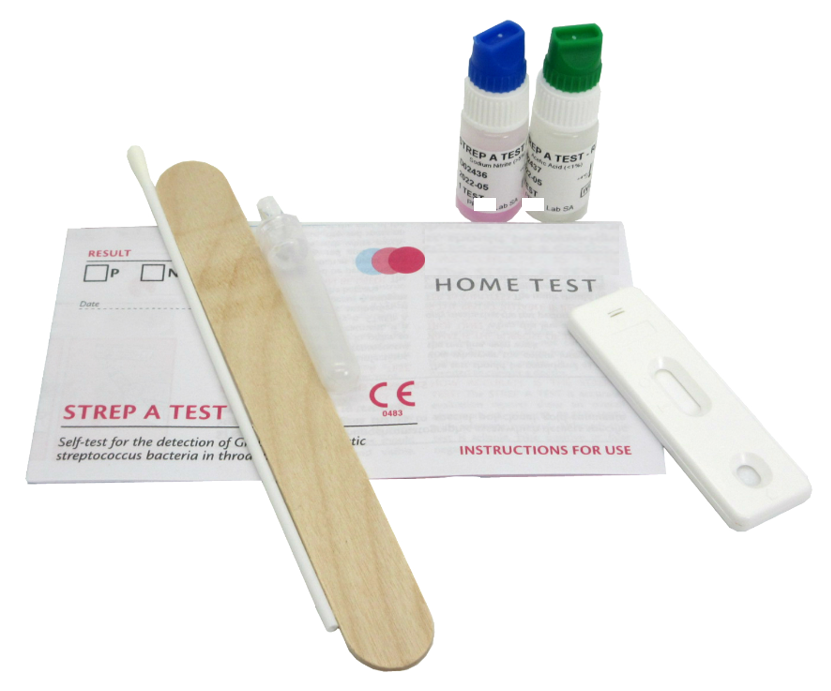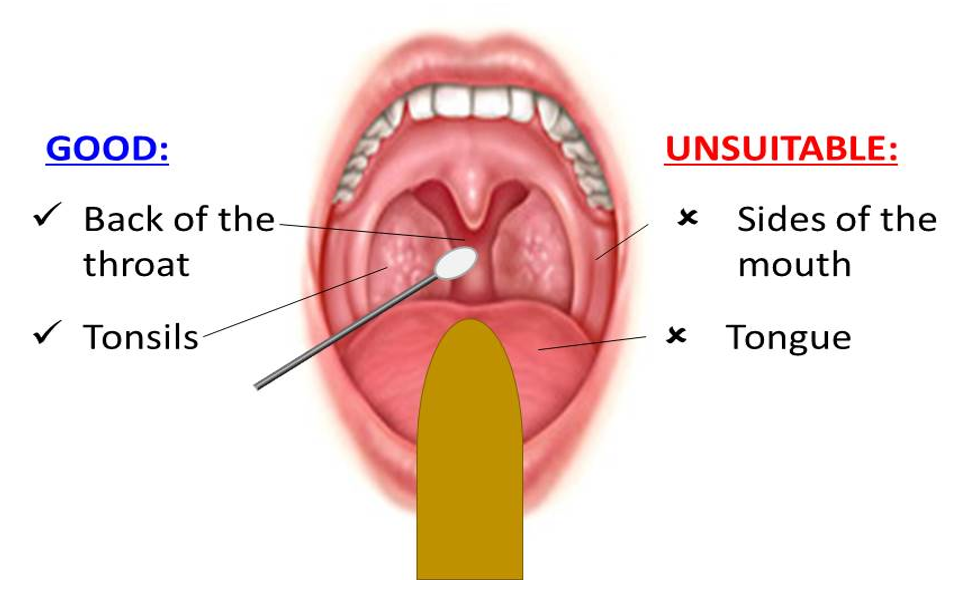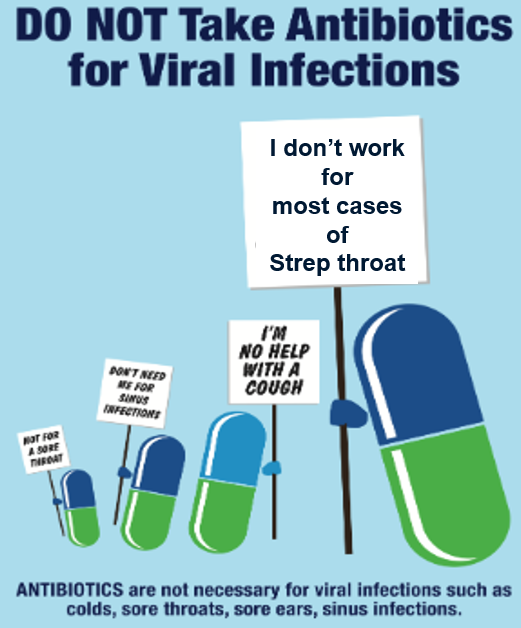Strep Throat Tests
A sore throat is very common and can cause irritation and pain when swallowing. They’re often nothing to worry about but can be a little uncomfortable. Sore throats can make it hard to swallow when eating and drinking. They might also affect a persons ability to get a good night’s sleep, as well as generally making them feel unwell.
Sore throats are usually caused by viruses like a cold or the flu, from smoking or occasionally they may be caused by bacteria. They can also be caused by:
- Tonsilitis – an infection of the tonsils at the back of your throat
- Laryngitis – when your voice box or vocal cords become irritated or swollen
- Glandular fever – a viral infection
- Strep throat – a bacterial throat infection
Strep throat is most prevalent in children and manifests initially as a sore throat. Most sore throats are caused by a virus of some sort, but strep derives from a type of bacteria known as Group A Streptococcus.
Strep throat is highly contagious, especially in the early stages of infection and before treatment with antibiotics has begun. It spreads through respiratory droplets when an infected person coughs, sneezes, or even talks. The risk of transmission is particularly high in close-contact settings like households, schools, and day-care facilities.
Fortunately, rapid POC strep tests can help diagnose this common bacterial infection early on to curtail the severity of its symptoms. Perhaps of equal importance, a strep test lowers the chances of misdiagnosing strep throat so unnecessary antibiotics are not prescribed.
Under Pharmacy First the test can also be done in the community pharmacy without the need of a GP appointment. A trained person will usually test a sore throat with a throat swab and decide on treatment options.
The trained person will perform swabbing in three simple steps:
- Have the patient / customer tilt their head back.
- Using a tongue depressor, press down on the tongue to get a clear view of the mouth and throat.
- Swab the posterior nasopharynx, tonsillar arches and other inflamed areas. Avoid touching the patient’s tongue, cheeks, and teeth.
If the sore throat is not bacterial the person performing the test can liaise with the pharmacist who might then suggest treatments to help the patient manage their symptoms, like paracetamol, painkillers, and lozenges.
If it is bacterial, and providing specific criteria are met, the pharmacist may prescribe antibiotics.
The following people would not usually be recommended for the test and referred to their GP:
- Children under the age of 6 years old.
- People with persistent symptoms that haven’t improved after 1 week.
- People with a weakened immune system.
- A high temperature not controlled with paracetamol or ibuprofen.
- People with certain medical conditions.
- People who have had 5 or more episodes in the last year



